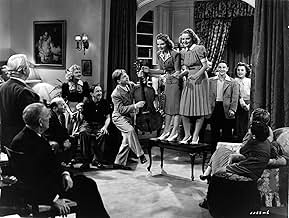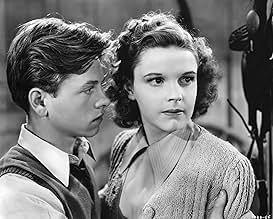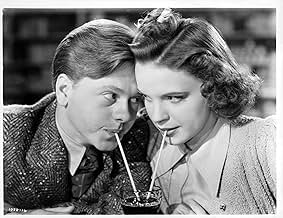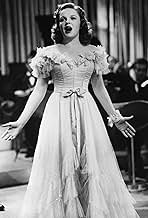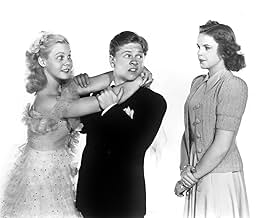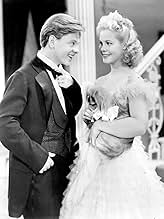This Busby Berkeley musical of the 1930s represents Mickey Rooney and Judy Garland at their best, which in the end really doesn't say "greatness." The film, which involves a recurring reminiscence on the "nostalgia" of the 1910s, is often over-acted, over-sung, and over-choreographed. Judy Garland's portrayal of a girl in love but shunned is reminiscent of almost all of the MGM musical roles in which she partook during her stint that lasted into the late 1940s. The minstrel act is a particularly interesting look at the virulent racism that still plagued American cinema during the Studio Age-Judy Garland in blackface is perhaps one of the most frightening images I have ever encountered.
Though, one cannot approach a film like this with more than a hint of cynicism: Busby Berkeley is arguably the greatest choreographer in the history of film, and though he does not show off the spectacle of his earlier films, like Gold Diggers of 1933 and Gold Diggers of 1935 (which he did not direct), his dance numbers are interesting (for instance, when the town's teenagers partake in a book-burning, throwing into the flames symbols of conformity). The film is sweet, fresh, and bright, and, as the first Arthur Freed musical, serves as one of his better (though certainly not his best).
In all, I give it a 3 out of 4 stars (***).
On a side note, three of the songs that appear in Singing in the Rain appear in this film, predating the Gene Kelly musical by over 15 years: Good Morning, Good Morning, Singing in the Rain (which appears in a montage showing previous MGM musicals), and You Are My Lucky Star.


